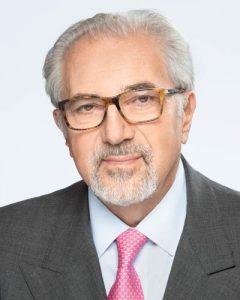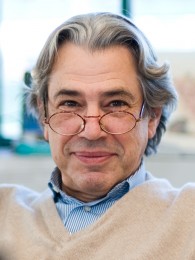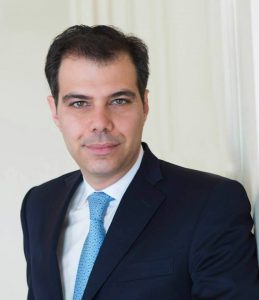Webcast: The Current Health Crisis and Biomedical Research in Greece
Webcast: The Current Health Crisis and Biomedical Research in Greece

Event Details
The video recording of the event can be found here. Tuesday June 17, 2020
Event Details
Tuesday June 17, 2020
9:00 – 10:00 am (San Francisco)
12:00 – 1:00 pm (Boston/New York)
19:00 – 19:30 (Greece/Cyprus)
Hellenic Innovation Network, with the support of the Greek Consulate of Boston and MIT Enterprise Forum Greece, hosts events to educate those in the US about technology innovation and entrepreneurship in Greece, and offer Greek entrepreneurs an opportunity to pitch and network in the US. While our events are typically held in Boston, due to the covid-19 situation we are hosting a series of webcasts in order to keep our community connected until our next in-person event.
Responses to Unanswered Questions from the Event:
Theoharis Theoharides: Studies have identified natural molecules (some from Greek flora) blocking corona virus binding and the subsequent release of pro-inflammatory cytokines, why isn’t the industry interested in this?
Industry is definitely interested and that is reflected in the fact that there are several hundred clinical protocols being pursued (repurposed drugs, direct antivirals, antibodies, convalescent plasma and vaccines). Furthermore, industry would have no aversion to natural compounds if the safety-efficacy criteria were met. If such compounds have been widely reported in credible journals, it is safe to assume that scientists in industry are not convinced, based on whatever data are published, that such compounds will work. Otherwise they would be investigating them right now.
Asimina Kazakidi (Biomedical Engineering, University of Strathclyde, UK): Thank you for the excellent discussion. What is your advice for faculty in UK/US Universities who think to return to Greece?
Always a difficult question. There is no doubt that in several places in Greece doing science is difficult, but there are also several exceptions (IMBB, Fleming, etc). If you find a good position in those you may wish to consider seriously going back. It does seem that these days there is an effort to “upgrade” science in Greece.
Elias Chatzoudis: Ακούγεται ότι η ομάδα αίματος παίζει κάποιο ρόλο. πχ όσοι έχουν ομάδα αίματος Ο+ θεωρούνται οι “τυχεροί”. Ισχύει αυτό [Translation: It sounds like blood type plays a role. For example, those who have O+ blood type are considered “lucky”. Is this true?]
In a recent study just published in the New England Journal of Medicine, it appears that gene variants in two regions of the human genome are associated with the degree of severity of COVID-19. These two regions carry many interesting genes, including one that determines blood type. The findings suggest that people with blood type A face a 50 percent greater risk of needing oxygen support or a ventilator should they become infected, but people with blood type O appear to have about a 50 percent reduced risk of severe COVID-19. It’s an interesting finding but still very preliminary.
Marios Sardis: Excellent conversation and very informative! Thank you very much for taking the time to talk to us. Would you at any point be interested to support teams of Greeks who want to pursue ideas in the US?
We would be happy to do so.
Gregory Stephanopoulos: On Universities: High quality Universities are a necessary (not sufficient) condition of economic development. Greece has a deficit here. How does it deal with it?
To date the only positive steps taken have been the establishment of certain high quality research institutes but nowhere enough to have a transformative impact on the existing structures. Greece needs to appreciate the value of basic research and furthermore the government needs to define a science strategy for the country. It takes, talent, money and time. That is what we have been arguing for some time.
Dr. Papadopoulos also shared an excerpt from his contributions in “Biotechnology in the time of Covid-19” [Rosetta Books], edited by Dr. Jeremy Levin.
 |
Speaker: Stelios Papadopoulos, Ph.D., Chairman of the Board, Biogen Inc. Following a long career on Wall Street as an equity analyst and investment banker, Dr. Stelios Papadopoulos joined Biogen’s Board of Directors in 2008 and was appointed as Chairman in June 2014. Dr. Papadopoulos is the Chairman of the Board of Directors of Exelixis, Inc., an oncology-focused biopharma company that he co-founded in 1994. He is also the Chairman of Regulus Therapeutics, Inc., a life sciences company focusing on microRNA. With Dr. Artavanis-Tsakonas, among others, in addition to Exelixis, he co-founded Anadys Pharmaceuticals, Inc. and Cellzome, Inc. He served as board member and Chairman of both companies until their respective acquisitions by Hoffman-La Roche in 2011 (Anadys) and GlaxoSmithKline in 2012 (Cellzome). In the not-for-profit sector, Dr. Papadopoulos co-founded Fondation Santé with Dr. Artavanis-Tsakonas in 2000 and has served since then as its Chairman. He is also a member of the Board of Visitors of Duke Medicine and a member of the Global Advisory Board of the Duke Institute for Health Innovation. Dr. Papadopoulos holds an MS in physics, a PhD in biophysics and an MBA in finance, all from New York University. Before coming to Wall Street in 1985, Dr. Papadopoulos was on the faculty of the Department of Cell Biology at New York University School of Medicine. |
 |
Speaker: Spyros Artavanis-Tsakonas, Professor Emeritus of Cell Biology, Harvard Medical School; Professeur honoraire au Collège de France President, Fondation Santé
Dr. Spyros Artavanis-Tsakonas is Professor Emeritus in the Department of Cell Biology at Harvard and Professeur honoraire au Collège de France. His current research covers topics in the areas of cellular signaling, developmental biology and genetics. From 2012 to March of 2017 he was the Chief Scientific Officer for Biogen. He joined the Department of Cell Biology at the Harvard Medical School in 1998 and was the founding Director of the Developmental and Regenerative Biology Program at Harvard. From 1999-2007 he was also the Kurt J. Isselbacher/Peter D. Schwartz Professor at the Massachusetts General Hospital Cancer Center. In 1998 he was elected Professor at the Collège de France, holding the Chair of Biology and Genetics of Development. He is the Founding Director of the Department of Genetics and Developmental Biology at Institut Curie, Paris while he previously served as Professor at the Department of Biology and the Department of Cell Biology and as the Director of the Biological Sciences Division at Yale University. Dr. Artavanis-Tsakonas is a co-founder of the biotechnology companies Exelixis, Cellzome, and Anadys. He is also the president and co-founder of the philanthropic organization Fondation Santé, which supports biomedical research and educational initiatives in Greece. |
 |
Moderator: Stratos Efthymiou, Consul General of Greece in Boston
Stratos Efthymiou is a career diplomat, currently serving as the Consul General of Greece in Boston. He holds a Master (DEA) from Sciences-Po, Paris and a BA in International Relations from Panteion University. He has previously served at the Greek Embassies in Ankara and Moscow and as Spokesperson and Deputy Spokesperson of the Greek Ministry of Foreign Affairs which he joined in 2004. He speaks English, French, Spanish, German, Russian and Turkish. |
Supported by:
 |
Organized by:
 |
 |
 |
more
Time
(Wednesday) 12:00 pm - 12:45 pm(GMT-11:00)
Location
Online
